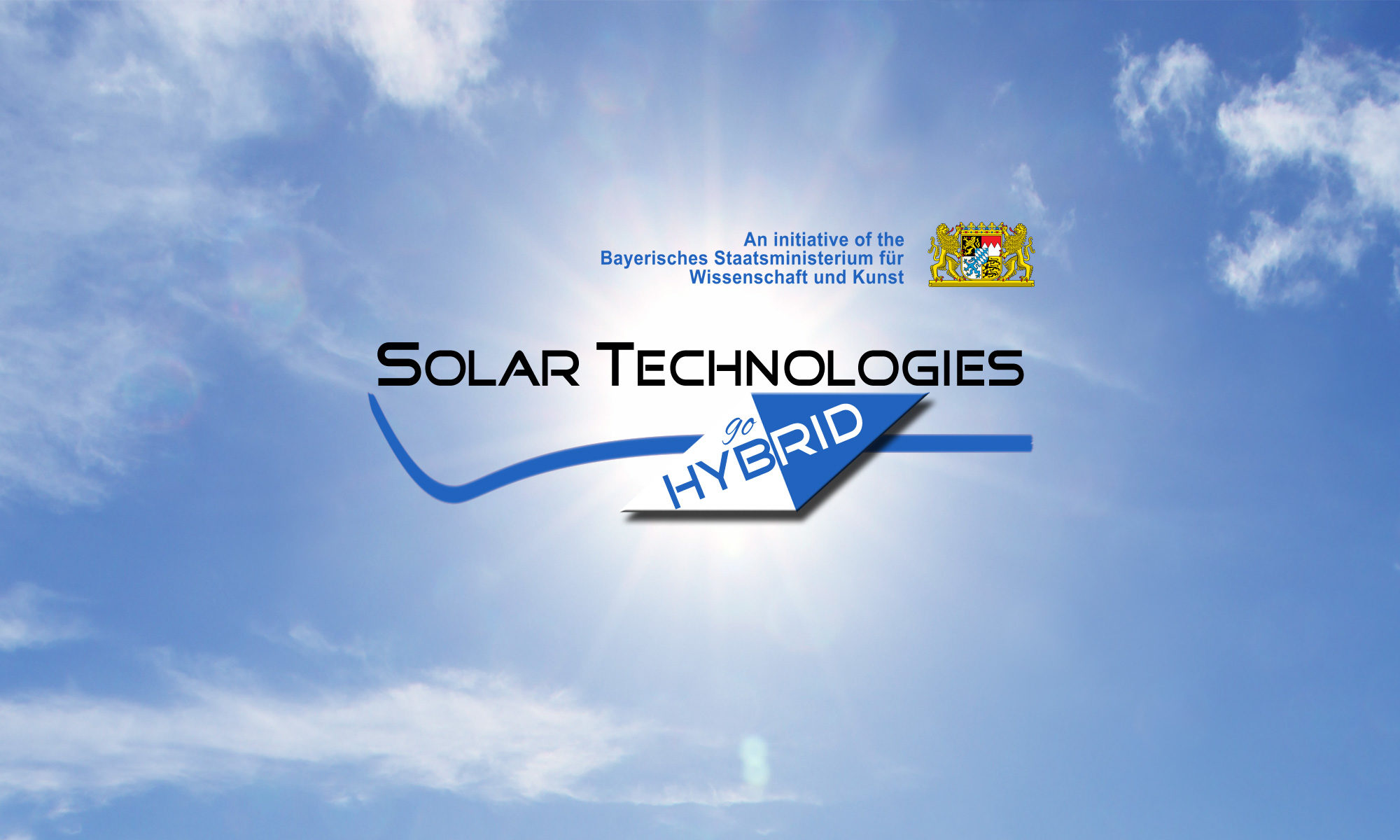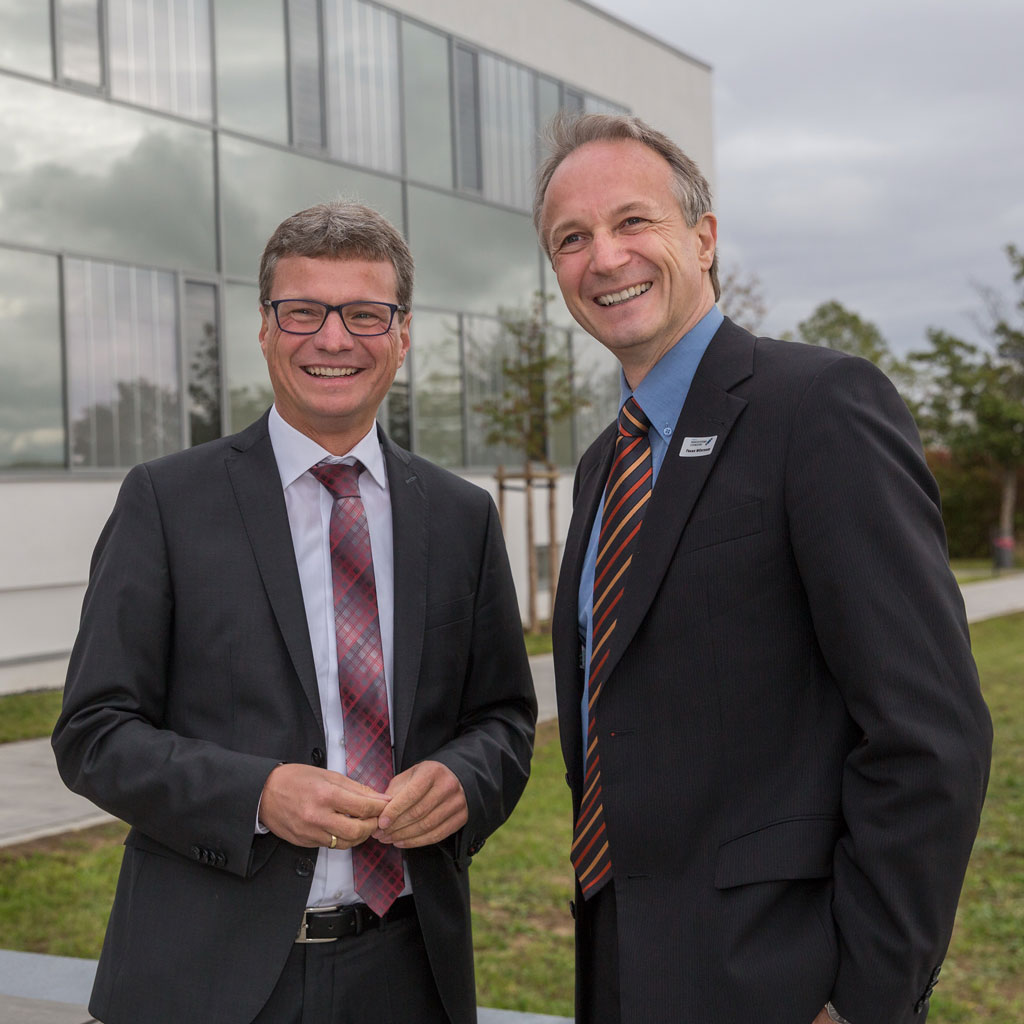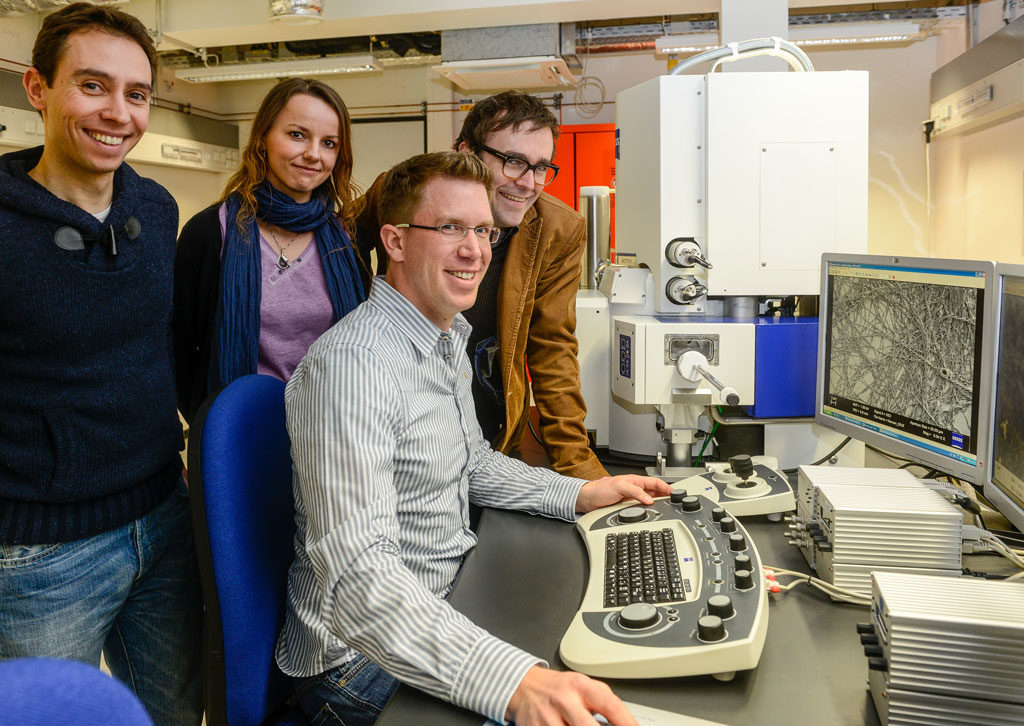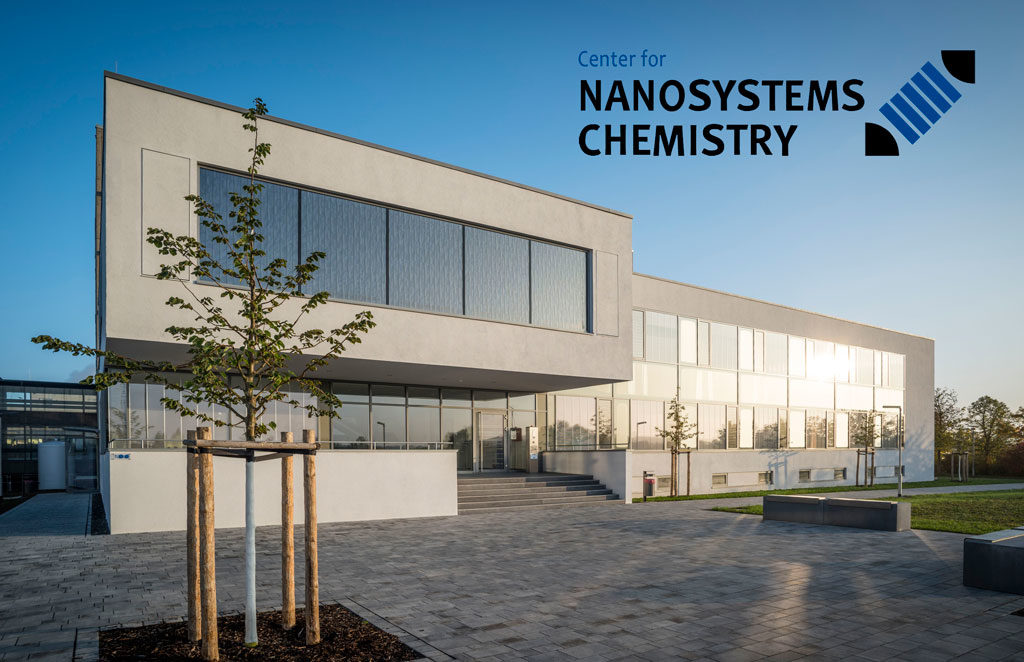
Executive Committee:
Prof. Dr. Frank Würthner
Universität Würzburg, Institut für Organische Chemie
Center for Nanosystems Chemistry
Am Hubland
97074 Würzburg
Germany
Phone: +49 931 31-85340
Fax: +49 931 31-84756
E-mail: wuerthner@uni-wuerzburg.de
Link: Würthner Research Group
Prof. Dr. Christoph Lambert
Universität Würzburg, Institut für Organische Chemie
Center for Nanosystems Chemistry
Am Hubland
97074 Würzburg
Germany
Phone: +49 931 31-85318
Fax: +49 931 31-87218
E-mail: christoph.lambert@uni-wuerzburg.de
Link: Lambert Research Group
Key Lab Description: English
Key Area: Supramolecular Materials for Photovoltaics and Photocatalysis
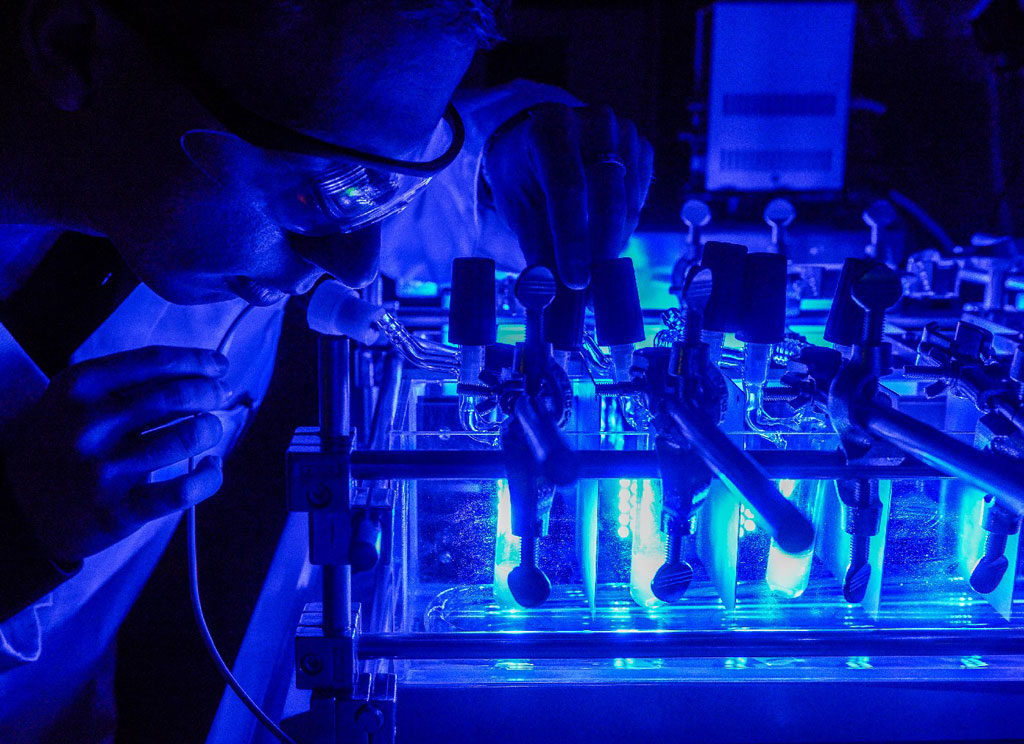
The conversion of solar energy into electrical energy is very costly with today’s silicon-based solar cells, and implementation of solar derived electricity on a large scale inevitably results in transportation and storage problems. The Bavarian collaborative project “Solar Technologies Go Hybrid” will explore alternative material systems that may eventually contribute to solving these problems.
The Center for Nanosystems Chemistry at the University of Würzburg is involved in the project as a Key Lab, where new supramolecular materials and advanced material systems are developed and examined. Through appropriate supramolecular organization, molecular building blocks for the absorption of sunlight, the transportation of excitons, and the separation of charge carriers are assembled into functional material systems. These supramolecular materials will be explored for efficient conversion of solar energy into electricity and fuels. Investigations are focused on the integration of light-harvesting systems into organic solar cells for electricity generation (photovoltaics) and connecting light-harvesting systems with photocatalytic units for solar fuel production (artificial photosynthesis, photocatalytic water splitting).
The Key Lab of the University of Würzburg comprises research organizations in the fields of chemistry, materials science, and physics that provide expertise over the entire spectrum of disciplines from the synthesis of molecular components and supramolecular materials to the spectroscopic characterization of elementary processes and ultimately to the production of device components. To strengthen infrastructure and interdisciplinary cooperation a new research facility for the Center for Nanosystems Chemistry will be built in the framework of this program that will include laboratories for junior research groups, service departments for X-ray diffraction and electron microscopy, as well as the facilities for fabrication and testing of electronics and photovoltaic components. Through close cooperation with the other four Bavarian Key Labs, supramolecular functional units from the Würzburg laboratory will be combined with inorganic, polymeric or carbon-based materials from other locations to produce cutting-edge hybrid material systems for the conversion of solar energy into electricity and fuels.
Key Lab Description: German
Supramolekulare Materialien für Photovoltaik und Photokatalyse
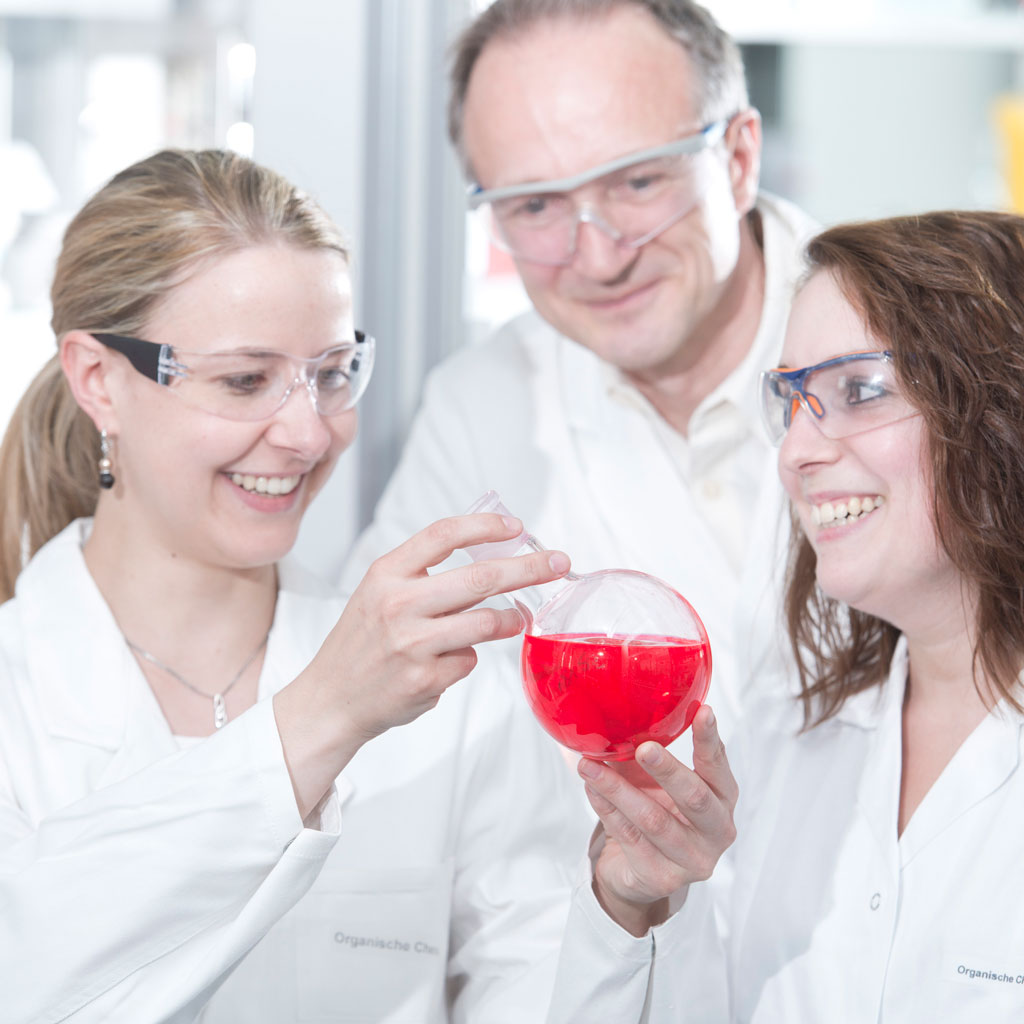
Die Umwandlung von Sonnenenergie in elektrische Energie ist mit heutigen auf Silizium basierenden Solarzellen kostenintensiv und führt im großen Maßstab unweigerlich zu Transport- und Speicherproblemen. Das bayerische Verbundprojekt „Solar Technologies Go Hybrid“ wird alternative Materialsysteme erforschen, die langfristig zur Lösung obiger Probleme beitragen können.
Das CNC der Universität Würzburg ist an dem Verbund mit einem Key Lab beteiligt, in welchem neue supramolekulare Materialien und Materialsysteme hergestellt und untersucht werden. Durch geeignete supramolekulare Organisation molekularer Funktionseinheiten für die Absorption von Sonnenlicht, den Transport von Exzitonen und die Separation von Ladungsträgern sollen effiziente und technisch nutzbare Materialsysteme für eine effiziente Umwandlung von Sonnenenergie in Elektrizität und in Brennstoffe erforscht werden. Im ersteren Fall bedarf es der Integration der Lichtsammelsysteme in organische Solarzellen (Photovoltaik), im letzteren der Kopplung mit photokatalytischen Funktionseinheiten (artifizielle Photosynthese, photokatalytische Wasserspaltung).
Das Key Lab der Universität Würzburg umfasst Forschungseinrichtungen aus der Chemie und der Physik, welche das gesamte Spektrum von der Synthese molekularer Komponenten und supramolekularer Molekülverbände, der spektroskopischen Charakterisierung von Elementarprozessen bis hin zur Bauelementfertigung beherrschen. Zur Stärkung der Infrastruktur und interdisziplinären Zusammenarbeit wird im Rahmen dieses Programmes ein Forschungsgebäude für das CNC errichtet, welches unter anderem Laboratorien für Nachwuchsgruppen, Serviceabteilungen für die Röntgendiffraktometrie und Elektronenmikroskopie sowie die benötigten Fabrikations- und Messtechniken zur Erforschung organischer Elektronik- und Photovoltaikbauelemente enthalten. Durch enge Kooperation mit den vier anderen bayerischen Key Labs wird auch die Herstellung hybrider Materialsysteme angestrebt, in denen supramolekulare Funktionseinheiten aus dem Würzburger Laboratorium mit anorganischen, polymeren oder kohlenstoffbasierten Materialen der anderen Standorte kombiniert werden.
